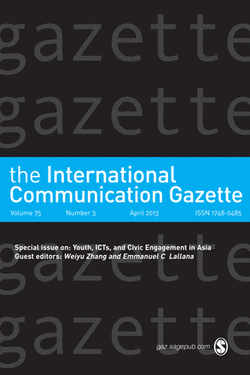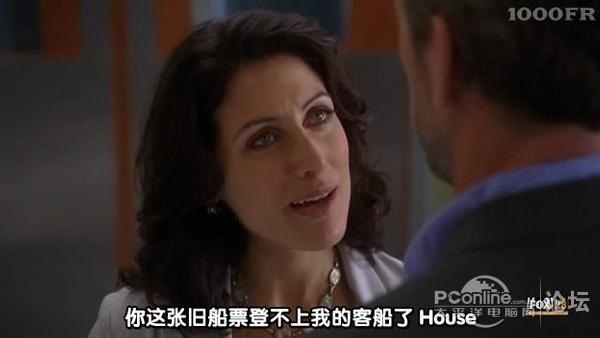2013年年初发表在《中国传播学刊》的这篇文章,有幸受到了翻译社群的关注,得到了赵嘉敏(译言创始人)的转发。两个很有趣的网站,政见和北大新媒体也做了这个研究的分享。这些回应都符合我们做学术与现实结合的action research的初衷,在此表示感谢。
0 Comments
This meta-review has been published by Chinese Journal of Communication. See the link HERE. THe following would be some highlights of the books I found highly interesting to share. "Although Castells depicts the states as either oppressive or corrupt (under the influence of financial capital) in most instances, he rightly points out that "the outcome of the conflict (between the state and civil society, added by author) depends on the interplay between political interests in the country and geopolitical interests related to the country" (p. 97). When social activism reaches its most radical level as regime-overthrowing revolutions, states respond with most radical measures such as switching off the Internet in Egypt or extreme violence in Tunisia. However, the effects of such state responses vary across countries depending on the particular state's internal politics and its position in geopolitics. This analysis makes it clear that states are not independent powers and they have to exist in relation to global powers. Social activism, therefore, does not exist in relation to just a single government but to a network of powers." "Hoofd makes a compelling etymological analysis (pp. 6-8), showing that activism was originally coined by Rudolf Eucken as the ideology of energetic action to overcome the non-spiritual nature of human kind. This ideology was later applied to economic theories by Walter Eucken (son of Rudolf), who is deemed as “the predecessor of current neo-liberalism” (p. 7). According to Walter’s theory, the active attitude to life is essential for economies to counter depression. “Activism was an economic strategy originally employed for the benefit of the nation-state in which its citizens could supposedly enjoy the largest amount of ‘spiritual freedom’ through actively encouraged but closely monitored economic competition” (p. 7). The collusion between activism and neo-liberalism highlights the entangled relationship among civil society, state, and global capitalism. Hoofd suggests that social activism, despite its confrontational appearance, may have deep ideological connections with the network of powers." "A few chapters in Ford’s book highlight the problematic role of international NGOs and other global forces. Financial aid can lead to financial dependence, which allows international organizations’ peace-building programme to dictate the limits of local activists’ engagement in the peace movement in post-conflict Timor-Leste (Dibley, 2013). Appealing to international norms of human rights helps sexuality right activists in Malaysia to establish an alternative source of authority but invites heavy state sanction (Lee, 2013). Conflicts within the agendas of multiple international forces are made explicit in framing sex work as work vs. sex workers as victims of human trafficking in Cambodia (Sandy, 2013). Illustrating the entangled relationship between local and global politics, an important case is that a reprimand by the US Department of State on the Cambodian government was reported as an achievement of the Cambodian sex worker rights campaign. " Some of my ideas A network approach to examining social activism, I think, is appropriate, especially after knowing of the ideological connection between activism and capitalism that Hoofd argues. Instead of treating activism and capitalism as two separate processes, we should examine how social activism emerges, evolves, and diminishes in relation to the network of powers. Instead of seeing social activism single-directionally determined by neo-liberal capitalism, I would like to borrow the concept of “seduction” (Baudrillard, 1990) to describe the relationship between the two. I hereby use one example to illustrate the seducing relationship: Google is a company that makes profits based on searching through free and open content provided by Internet users and this profit-driven practice coincides with many activist appeals for freedom of expression or freedom of information flow. When Google exploits these causes and activists behind them, activists also try to demand moral or material support from Google to fulfill their goals, such as fighting against the state. It is hard to say who is in control and who is winning over whom. It is indeed a complicity suggested by Hoofd but the complicity goes both ways. What makes our research on social activism exciting is to make visible the rules, charms, snares, and lures involved in such seduction.  Our special issue on "Youth, ICTs and Civic Engagement in Asia" is published in International Communication Gazette!!! Thanks to my co-editor and project head Emmanuel Lallana, and dear collaborators Clarissa David, Mohammad Sahid Ullah, P. Vigneswara Ilavarasan, and Joanne Lim! Speical thanks to the editor, manager, and proofreader of this journal too. They are all so professional that this issue gets published smoothly and timely. Highly recommend my colleagues to submit to this journal! You can download the entire issue HERE! A table of content is found here. Two pieces of facts caught my interest these days.
Fact 1: The recently revived Speaker's Corner in Hong Lim Park attracted two protesters on September 1st, its first day when restrictions were officially eased. Media reported that there were more audience than actors. Fact 2: Advisory Council on the Impact of New Media on Society released a consultation paper on August 29th, urging the Government to interact with Singaporeans via new media. When I watched news on Fact 1, I cannot stop thinking of Fact 2 and say, come on, because we have the Internet. Our speaker's corner nowadays is the cyberspace. Here is a commentary on the consultation paper. TODAYonline:Can Radical Also Be Right? In other words, if the Government wants to engage citizens in the new media as the report envisions, it cannot always set the agenda. This is quite radical, given that the Government’s prerogative to set the agenda has remained one of the fundamentals in Singapore since independence. The quote above is very interesting because it triggers my mental link between e-engagement and radical democracy. Radical democracy, according to Cohen & Fung, embraces two ideas: Participation and Deliberation. The news author is right to say e-engagement is radical because he realizes that e-engagement gives citizens direct roles in policy-making. The officials will have to respond to citizens' concerns rather than setting the agenda for them. However, the author more or less used radical as a negative word considering that he doubted the co-existence of radical and right. Cohen & Fung's definition implies that radical democracy definitely can be right because it is based on deliberation. So I think the real concern here is not whether e-engagement is radical or not. It is the problem of the tension between participation and deliberation. How does a public decision-making procedure become widely participatory and highly deliberate at the same time? Especially when the Government disagrees with its citizens on what is considered as deliberate. And when the citizens disagree with each other. |
Weiyu Zhang
I am an Associate Professor at Department of Communication and New Media, National University of Singapore. Categories
All
Archives
January 2019
|



 RSS Feed
RSS Feed
